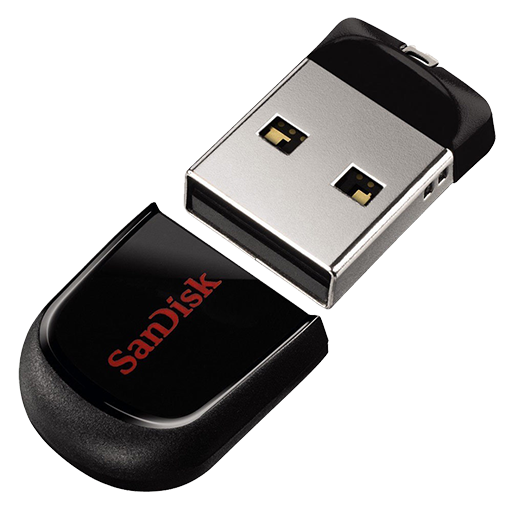
This image has format transparent PNG with resolution 512x512.
You can download this image in best resolution from this page and use it for design and web design.
USB flash drive PNG with transparent background you can download for free, just click on download button.
A USB flash drive is a data storage device that includes flash memory with an integrated USB interface. It is typically removable, rewritable and much smaller than an optical disc. Most weigh less than 30 g (1 oz). Since first appearing on the market in late 2000, as with virtually all other computer memory devices, storage capacities have risen while prices have dropped. As of March 2016, flash drives with anywhere from 8 to 256 gigabytes (GB) were frequently sold, while 512 GB and 1 terabyte (TB) units were less frequent. As of 2018, 2 TB flash drives were the largest available in terms of storage capacity. Some allow up to 100,000 write/erase cycles, depending on the exact type of memory chip used, and are thought to last between 10 and 100 years under normal circumstances (shelf storage time).
USB flash drives are often used for storage, data back-up and transferring of computer files. Compared with floppy disks or CDs, they are smaller, faster, have significantly more capacity, and are more durable due to a lack of moving parts. Additionally, they are immune to electromagnetic interference (unlike floppy disks), and are unharmed by surface scratches (unlike CDs). Until about 2005, most desktop and laptop computers were supplied with floppy disk drives in addition to USB ports, but floppy disk drives became obsolete after widespread adoption of USB ports and the larger USB drive capacity compared to the "1.44 megabyte" (1440 kibibyte) 3.5-inch floppy disk.
USB flash drives use the USB mass storage device class standard, supported natively by modern operating systems such as Windows, Linux, macOS and other Unix-like systems, as well as many BIOS boot ROMs. USB drives with USB 2.0 support can store more data and transfer faster than much larger optical disc drives like CD-RW or DVD-RW drives and can be read by many other systems such as the Xbox One, PlayStation 4, DVD players, automobile entertainment systems, and in a number of handheld devices such as smartphones and tablet computers, though the electronically similar SD card is better suited for those devices.
A flash drive consists of a small printed circuit board carrying the circuit elements and a USB connector, insulated electrically and protected inside a plastic, metal, or rubberized case, which can be carried in a pocket or on a key chain, for example. The USB connector may be protected by a removable cap or by retracting into the body of the drive, although it is not likely to be damaged if unprotected. Most flash drives use a standard type-A USB connection allowing connection with a port on a personal computer, but drives for other interfaces also exist. USB flash drives draw power from the computer via the USB connection. Some devices combine the functionality of a portable media player with USB flash storage; they require a battery only when used to play music on the go.
In this gallery you can download free PNG images: USB flash drive PNG images free download